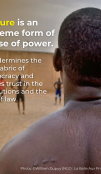International Conference on Climate Resilient Pakistan

The conference brought together governments, leaders from the public and private sectors as well as civil society to support the people and the Government of Pakistan after the devastating floods of 2022. The EU feels full solidarity with the Pakistani people who suffered with the devastating impact of the floods. The catastrophic consequences of this natural disaster have affected millions and destroyed livelihoods, crops and infrastructures, putting pressure on the most vulnerable people, and additional pressure on Pakistan’s economic outlook.
My heart broke when I saw the devastation of the floods in Pakistan last year. But the Pakistani people showed heroic humanity. The international community must match their resilience with investments to strengthen their communities for the future.
António Guterres, Secretary-General of the United Nations
A sign of solidarity and engagement, the conference focused on discussing and endorsing a comprehensive recovery strategy named 4RF: Resilient Recovery, Rehabilitation, and Reconstruction Framework, building on the Post-Disaster Needs Assessment undertaken. The 4RF defines timeframe, priorities, institutional arrangements, policy articulation, financial management, and implementation modalities for recovery and reconstruction through a consultative process with federal and provincial governments.
Today, we are endorsing an ambitious reconstruction plan. We are joining forces with our partners to help put Pakistan on its path to recovery. Our Team Europe support to the reconstruction of Pakistan is around 500 million euro – including our humanitarian assistance. And the EU and Pakistan have just agreed an 87 million euro package, in line with our Global Gateway strategy.
Ursula von der Leyen, President of the European Commission
Given the scale of the disaster, the EU and its Member States reacted quickly activating the EU Civil Protection mechanism and deployed immediate humanitarian aid by adapting ongoing development cooperation programmes. These were to ensure early recovery support for live-saving and live-sustaining assistance, health services, food and water supplies, shelter, focused on Sindh, Balochistan and Khyber Pakhtunkhwa.
With more than 20 million people still depending on humanitarian aid, the humanitarian phase is not over yet. Additional humanitarian funding is urgently needed to cover the most critical needs. To this end, the EU is stepping up its support with additional EUR 10 million, released this week, to respond to the most urgent humanitarian needs on the ground.
Pakistan can count on the EU to be by its side in the recovery process, which is formally starting today but will require joint efforts and further detailed work in the months and years to come.
Ambassador Lotte Knudsen, Head of EU Delegation to the UN in Geneva
Pakistan remains among the most vulnerable countries to climate change, so it is important to contribute in a meaningful way to building back better and making sure that the reconstruction efforts promote a climate resilient economy. As what we are starting today is a long term, common endeavour, this is a work in progress and EU contribution will likely increase on the road ahead, including further funding from European Development Banks, and based on further work on the Post-Disaster Need Assessment and detailed 4RF Government Plan.
Let’s build back better and strengthen Pakistan’s resilience to climate change!





